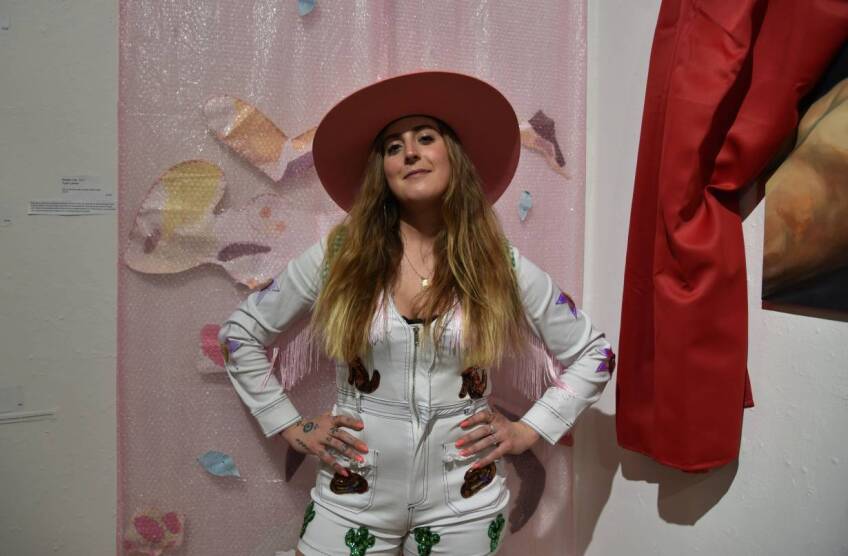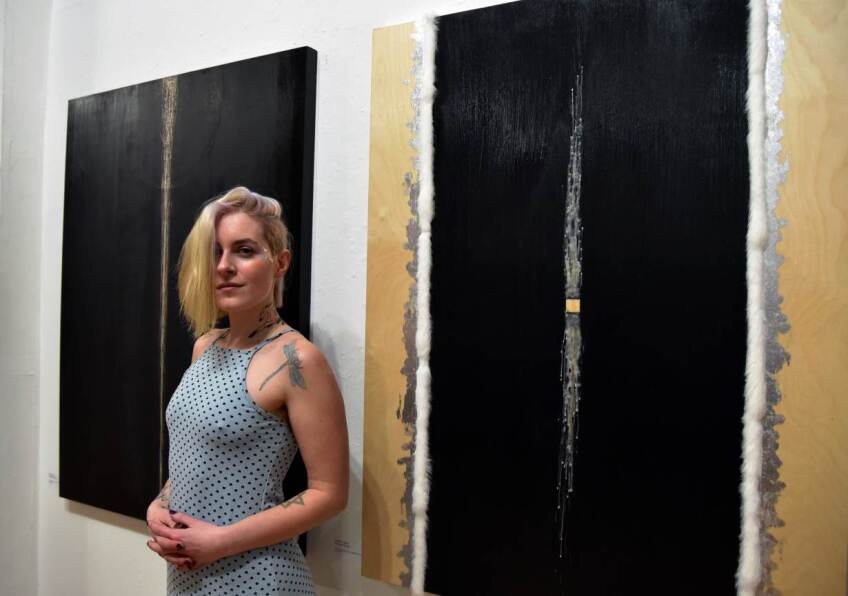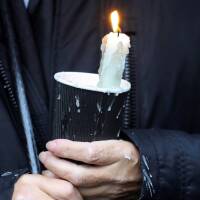Roundtable: The New York Sex Workers Taking Crisis Relief into their Own Hands
This story was originally published May 18, 2020 by the Thomson Reuters Foundation.
With bars shut, clubs closed and people staying home across the United States, sex workers are struggling to cope in the coronavirus pandemic, bereft both of customers and state support.
Experts have estimated there are about a million sex workers in the United States, where prostitution is illegal except in parts of Nevada. Most lack the documents needed to qualify for government relief.
So in New York, three sex workers took crisis relief into their own hands, raising money online and distributing it to other sex workers in need. They have raised more than $130,000 since March, and groups of sex workers across the country have followed suit.
The Thomson Reuters Foundation asked the three leaders of the Sex Workers Outreach Project (SWOP) in Brooklyn about how their jobs have changed and what they're planning next.

How is coronavirus impacting sex workers?
Fera Lorde, 31: I've taken probably a 95% hit in the income I should have gotten, and I was denied for unemployment, and I haven't gotten the $1,200 (coronavirus relief check from the government). And that's the story for a lot of people.
Molly Simmons, 26: I know that the sex industry is seen as a recession-proof industry, but what's different here is that it's not a normal recession. Because it's a pandemic and so many people are worried about their health, there is a decline in demand.
The sex industry isn't gone completely. People will always be paying for sex somewhere and in some way, but so many people have taken an unprecedented hit. They couldn't prepare because they live paycheck to paycheck.
More on the impact of COVID-19 around the world
Sex online seems to be booming?
Tea Antimony, 32: There are a lot of articles about sex workers moving online, which is true but it's also effectively the equivalent of moving to a completely different job with different skill sets and other entry barriers. You need a bank account, equipment, good internet access. It's very difficult and then also the market is flooded. So moving online is not super viable for a large portion of people.
I think with most of us, and most of the people I know, about 100% of their income is lost.
So you started a mutual aid fund. What is that?
Simmons: Mutual aid has a really old history of people taking care of each other when institutions and governments leave them behind.
Lorde: It's really just community care and redistributing resources to everyone.
So many people who engage in sex work do so because we are failed by institutions already, and because of that we end up leaning on other even before this crisis.
We owe a lot of the history of mutual aid to black and brown and indigenous people ... especially in the sex work community. We didn't invent this wheel, we're just helping turn it.
Antimony: As a labor group, we have not only been excluded from institutionalized care and aid, but we have been actively targeted. So I think mutual aid comes into play with that because it's a non-hierarchical way of engaging in care within communities.
How did you raise $130,000?
Simmons: Most of our money comes from individual donations, though we have gotten a few institutional donations from other nonprofits. (Their GoFundMe pageshows 1,800 donors, with many giving just $10 or $20)
Lorde: It's beyond anything any of us imagined when we started. I was really shocked that we received so many individual contributions because I feel like everyone's out of work now.
It's incredible that we've received so much support but it's also really difficult to see that it still in no way meets the level of need of our community.
How do you decide who gets the money and how it is spent?
Simmons: The majority of our needs right now are food, medication and caring for dependents. Food is an incredibly pressing need.
We have a simple verification process just to make sure the money is staying within our community, but we try to keep the barriers really low so people who are most at risk and most in need can access it really easily.
Grants are between $50 and $200. So far no one's been turned away.

Will you keep this going after the pandemic?
Simmons: We want to keep this fund open indefinitely, and have it be a permanent resource for our community. We recognize that there will come a point when this surge in donations will end, so we've set aside reserves.
Before this, mutual aid efforts were guerilla style — someone knows someone who needs help, and so you just do what you can. Now we have a concrete fund so we can keep up the cash assistance and apply for grants.
Antimony: It's been helping me and helping us recognize that this is really an opportunity to come together and heal our communities. I think for me, and maybe I can speak for a few other people, the thing that's keeping this big existential fear at bay is to see the level of mutual aid that's come out across the world.
Simmons: We never want disasters to happen, but when they do, it's really beautiful and empowering to see how everybody comes together to do the work.
This conversation has been edited and condensed.
Reporting by Nellie Peyton; editing by Tom Finn and Lyndsay Griffiths.





